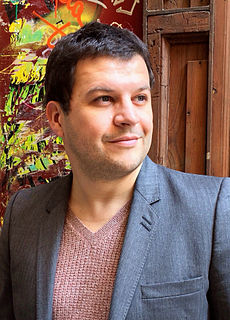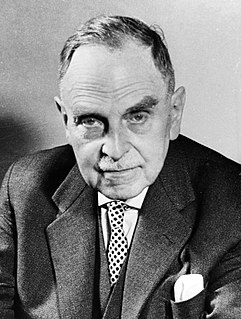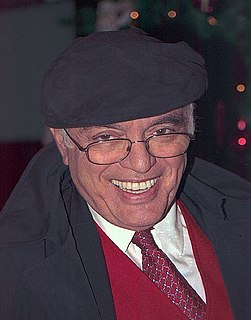A Quote by Plotinus
Before we had our becoming here, we existed There, men other than now; we were pure souls. Intelligence inbound with the entire of reality, not fenced off, integral to that All. [...] Then it was as if One voice sounded. One word was uttered and from every side an ear attended and received and there was an effective hearing; now we are become a dual thing, no longer that which we were at first, dormant, and in a sense no longer present.
Related Quotes
They were now both ready, not to begin from scratch, but to continue with a love that had survived for thirteen years in hibernation. They were no longer travellers without baggage. They were no longer twenty. They'd both been around the block a bit and had suffered without the other. They'd both lost their way without the other. Each had tried to find love with other people. But all that was now finished.
In the Renaissance, madness was present everywhere and mingled with every experience by its images or its dangers. During the classical period, madness was shown, but on the other side of bars; if present, it was at a distance, under the eyes of a reason that no longer felt any relation to it and that would not compromise itself by too close a resemblance. Madness had become a thing to look at: no longer a monster inside oneself, but an animal with strange mechanisms, a bestiality from which man had long since been suppressed.
As a result of continuous work with these highly toxic substances, our minds were so numbed that we no longer had any scruples about the whole thing. Anyway, our enemies had by now adopted our methods and as they became increasingly successful in this mode of warfare we were no longer exclusively the aggressors, but found ourselves more and more at the receiving end.
These boys, now, were living as we'd been living then, they were growing up with a rush and their heads bumped abruptly against the low ceiling of their actual possibilities. They were filled with rage. All they really knew were two darknesses, the darkness of their lives, which were now closing in on them, and the darkness of the movies, which had blinded them to that other darkness, and in which they now, vindictively, dreamed, at once more together than they were at any other time, and more alone.
Most writers in Mexico have had posts as ambassadors, secretaries - that is no longer the case. Now a writer can live off writing. He has an audience: there are publishing houses, there are newspapers - so the situation is not as terrible as it used to be when there were no means and he had to go into government service, be an ambassador or a cabinet minister, etc. So, things are changing in the sense that the civil society is now the protagonist. The writer therefore occupies a different position, but no less influential than in the past, in a new, democratic society.
We are finally living in Plato's cave, if we consider how those who were imprisoned within the cave - who could do nothing but watch those shadows passing on the back wall - were convinced that those shadows were their one and only reality. I see a profound similarity to all this in the epoch we're now living in. We no longer live simply through images: we live through images that don't even exist, which are the result not of physical projection but of pure virtuality.
And indeed when we are no longer in love with women whom we meet after many years, is there not the abyss of death between them and ourselves, just as much as if they were no longer of this world, since the fact that we are no longer in love makes the people that they were or the person that we were then as good as dead?
Consider what you have in the smallest well-chosen library-a company of the wisest and wittiest men which can be plucked out of all civilized countries in a thousand years. The men themselves were then hidden and inaccessible. They were solitary, impatient of interruption, and fenced by etiquette. But now they are immortal, and the thought they did not reveal, even to their bosom friends, is here written out in transparent words of light to us, who are strangers of another age.
Whether these were liberal publications or conservative publications, whether they were mainstream or slightly to the side of the mainstream; out of the mainstream, they all believed that they had the right to tell you how to stylize yourself. And from the New York Times to the much more left-winged nation. And The Voice said, no, whatever you want to. You drew whatever you want to, we'll publish it. Nobody was doing that. Nobody does it today. The Voice is no longer that paper, and editorializing is now in the hands of editors, with few exceptions.
Without any extraordinary effort of genius, I have discovered that nature was the same three thousand years ago as at present; that men were but men then as well as now; that modes and customs vary often, but that human nature is always the same. And I can no more suppose, that men were better, braver, or wiser, fifteen hundred or three thousand years ago, than I can suppose that the animals or vegetables were better than they are now.
So, preferring death to capture, I accomplished the most astonishing deeds, and which, more then once, showed me that the too great care we take of our bodies is the only obstacle to the sucess of those projects which require rapid decision, and vigorous and determined execution. In reality, when you have once devoted your life to your enterprises, you are no longer the equal of other men, or, rather, other men are no longer your equals, and whosoever has taken this resolution, feels his strength and resources doubled.
Best to let the broken glass be broken glass, let it splinter into smaller pieces and dust and scatter. Let the cracks between things widen until they are no longer cracks but the new places for things. That was where they were now. The world wasn't ending: it had ended and now they were in the new place. They could not recognize it because they had never seen it before.
I came from a tradition where souls were a theological reality, not a faith reality. Souls were for saving, not for communing. Souls were for converting and, once they were converted, they were to be left alone. Souls were too mystical, too subjective, too ambiguous, too risky, too... well, you know - New Age-ish.
Where once such devices were relegated to appropriate times, now they've become necessities. The other day I watched a kid come off the school bus listening to music on his headphones, oblivious to the traffic zooming past him. And I can't even begin to count the times I've thought pet owners were talking to their dogs while taking them for a walk when, in reality, they were blabbing on their cell phones. It's a different level of use than we've seen in the past, ... It's becoming more of a full-day listening experience as opposed to just when you're jogging.








































